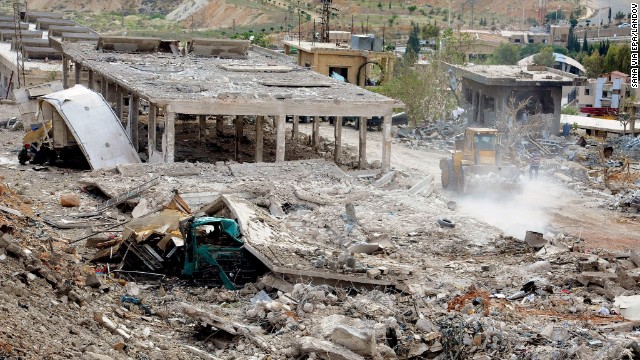THE ROVING EYE
The China-US 'Brotherhood'
By Pepe Escobar
The fifth round of the US-China Strategic and Economic Dialogue began this Thursday in Washington. This China-US "Brotherhood" does involve a lot of talk - with no perceptible action. US Think Tankland is trying to convey the impression that Beijing is now in a more fragile position relative to Washington compared with the post-financial crisis environment in 2009. Nonsense.
It's as if the ongoing NSA (global) scandal never happened; Edward Snowden exposed how the US government has turned against its own citizens even while it keeps spying on virtually the whole planet. Then there's the meme of the Chinese economy being "in trouble", when in fact Beijing is launching a long-reaching, complex strategy to calibrate the effects of a relative economic slowdown.
Finally, the supposed "aggressive Chinese behavior" in terms of Asian security is just spin. Beijing is building up its navy, of course - yet at the same time both China and selected members of the Association of Southeast Asian Nations are fine-tuning their tactics ahead of multilateral talks about a code of conduct for any serious problems in the South China Sea. Beijing would be foolish to go for diplomacy of the gunboat variety - which would certainly attract a US countercoup.
Bogged down, all over
Beijing has clearly interpreted the North Atlantic Treaty Organization's "liberation" of Libya - now reverted into failed state status; US support for the destruction of Syria; and the "pivoting" to Asia as all interlinked, targeting China's ascension and devised to rattle the complex Chinese strategy of an Eurasian energy corridor.
Yet it does not seem to be working. As Asia Times Online reported, the Iran-Pakistan (IP) pipeline may well end up as IPC, "C" being an extension to Xinjiang in western China. Beijing also knows very well how the proposed Iran-Iraq-Syria gas pipeline has been a key reason for the emphatic attack on Syria orchestrated by actors such as Qatar, Saudi Arabia and Turkey. Beijing calculates that if Bashar al-Assad stays and the US$10 billion pipeline ever gets completed (certainly with Chinese and Russian financial help) the top client may end up being Beijing itself, and not Western Europe.
Considering its strategic relationship with Islamabad, Beijing is also very much aware of any US moves to stir up trouble in geo-strategically crucial Balochistan in Pakistan - with a possible overspill to neighboring Sistan-Balochistan province in Iran. In parallel, Beijing interprets US bluster and intransigence about Iran's nuclear program as a cover story to upset its solid energy security partnership with Tehran.
Regarding Afghanistan, the corridors at the Zhongnanhai in Beijing must be echoing with laughter as Washington backtracks no less than 16 years, to the second Bill Clinton administration - an eternity in politics - to talk to the Taliban in Doha essentially about one of the oldest Pipelinestan gambits. "We want a pipeline" (the Turkmenistan-Afghanistan-Pakistan-India, TAPI), says Washington. "We want our cut", the Taliban reply. This is politics as Groundhog Day.
The problem is Washington has absolutely nothing to offer the Taliban. The Taliban, on the other hand, will keep their summer offensive schedule, knowing full well they will be free to do whatever they please after President Hamid Karzai slides into oblivion. As for the Washington notion that Islamabad will be able to keep the Afghan Taliban in check, even the goats in the Hindu Kush are laughing about it.
It's all about Syria
Syria, though, remains the key story - as the pivot of a spreading cancer, a Sunni/Shi'ite sectarian war largely encouraged by the House of Saud and other Gulf Cooperation Council actors, and bought hook, line and sinker by the Obama administration.
It took a courageous diplomat to leak it, plus translations from Russian to Arabic and then English, for the world to have an idea of what politicians actually discuss in those largely vacuous, photo-opportunity summits. What Russian President Vladimir Putin told Obama, Britain's David Cameron and French President Francois Hollande face-to-face at the recent Group of Eight summit in Northern Ireland is nothing less than gripping. Examples:
Putin addressing the table: "You want President Bashar al-Assad to step down? Look at the leaders you've made in the Middle East in the course of what you have dubbed the 'Arab Spring'."
Putin addressing Obama, Cameron and Hollande: "You want Russia to abandon Assad and his regime and go along with an opposition whose leaders don't know anything except issuing fatwas declaring people heretics, and whose members - who come from a bunch of different countries and have multiple orientations - don't know anything except how to slaughter people and eat human flesh."
Putin addressing Obama directly: "Your country sent its army to Afghanistan in the year 2001 on the excuse that you are fighting the Taliban and the al-Qaeda organization and other fundamentalist terrorists whom your government accused of carrying out the 11 September attacks on New York and Washington. And here you are today making an alliance with them in Syria. And you and your allies are declaring your desire to send them weapons. And here you have Qatar in which you [the US] have your biggest base in the region and in the territory of that country the Taliban are opening a representative office."
The best part is that German Chancellor Angela Merkel then corroborated Putin's every word. And Chinese President Xi Jinping certainly would have done the same.
Keep weaving that net, brother
Even if the Obama administration's bright idea of selecting the "good" rebels to be presented with light weapons would work (and it won't; in a war theatre the real hardcore fighting forces - as in the Jabhat al-Nusra-style gangs - end up laying their hands on the best weapons), there's no evidence that Bashar al-Assad's forces will fold.
On the contrary. There will be a push to reconquer all of Aleppo - already in progress, as well as a push southward to Daraa to secure the border with Jordan; petro-monarchy-fueled weapons to "rebels" in southern Syria go through Jordan. Rumors of "overextension" are greatly exaggerated; this can be accomplished in stages.
Russia, meanwhile, will keep playing a very clever game; ensuring essential weapons to the Syrian government while ready to deliver even more lethal stuff in case Washington decides to step up its weaponizing.
And then there's the whole Muslim Brotherhood-wide mess. Al-Akhbar has deliciously detailed how the House of Saud virtually destroyed Qatar in Egypt - as well as in Syria. It's never enough to remember that the House of Saud supports backward Salafi parties in Egypt and weaponizes backward Salafi fighters in Syria.
In Egypt, meet the new boss - Saudis and Emiratis - same as the old boss - Qataris. Before he recently decided to self-depose, Emir al-Thani spent as much as $17 billion on assorted Arab Springers, most of it for Morsi in Egypt. Now the House of Saud has already offered $5 billion, and the Emirates $3 billion. None of them have obviously been reading on this site the views of Spengler - who has proved that Egypt, much to the regret of their wonderful people, will remain a banana republic - without the bananas (see Islam's civil war moves to Egypt , Asia Times Online, July 8, 2013.)
The bottom line: Beijing is betting it will win in Pakistan, in Iran, in Syria (it's already winning in Iraq), in Pipelineistan, not to mention in the South China Sea, while Washington will be entangled in its own Brotherhood net. "Fragile"? You wish.
Pepe Escobar is the author of Globalistan: How the Globalized World is Dissolving into Liquid War (Nimble Books, 2007), Red Zone Blues: a snapshot of Baghdad during the surge (Nimble Books, 2007), and Obama does Globalistan (Nimble Books, 2009).
He may be reached at
[email protected].
(Copyright 2013 Asia Times Online (Holdings) Ltd. All rights reserved. Please contact us about sales, syndication and republishing.)


